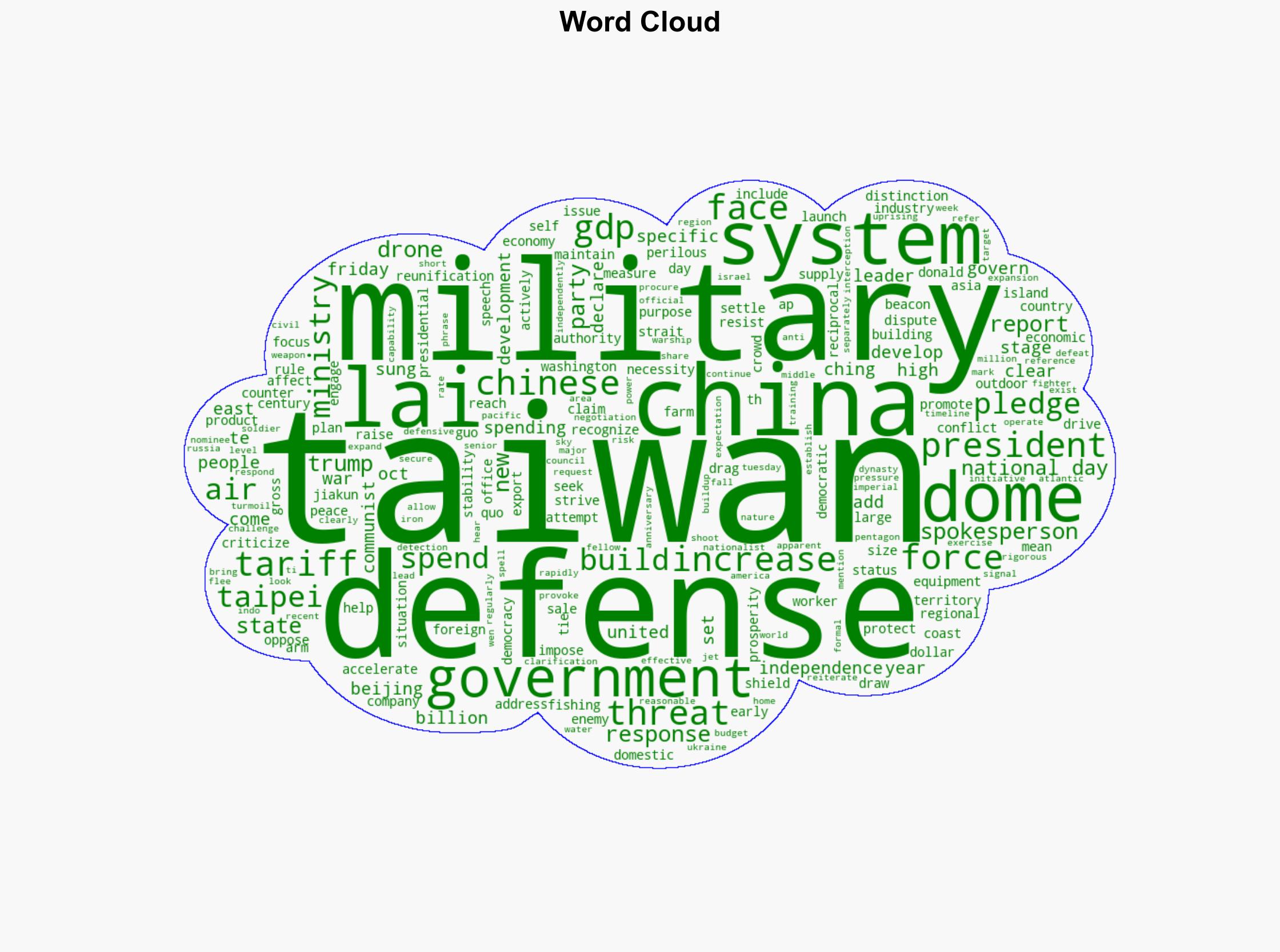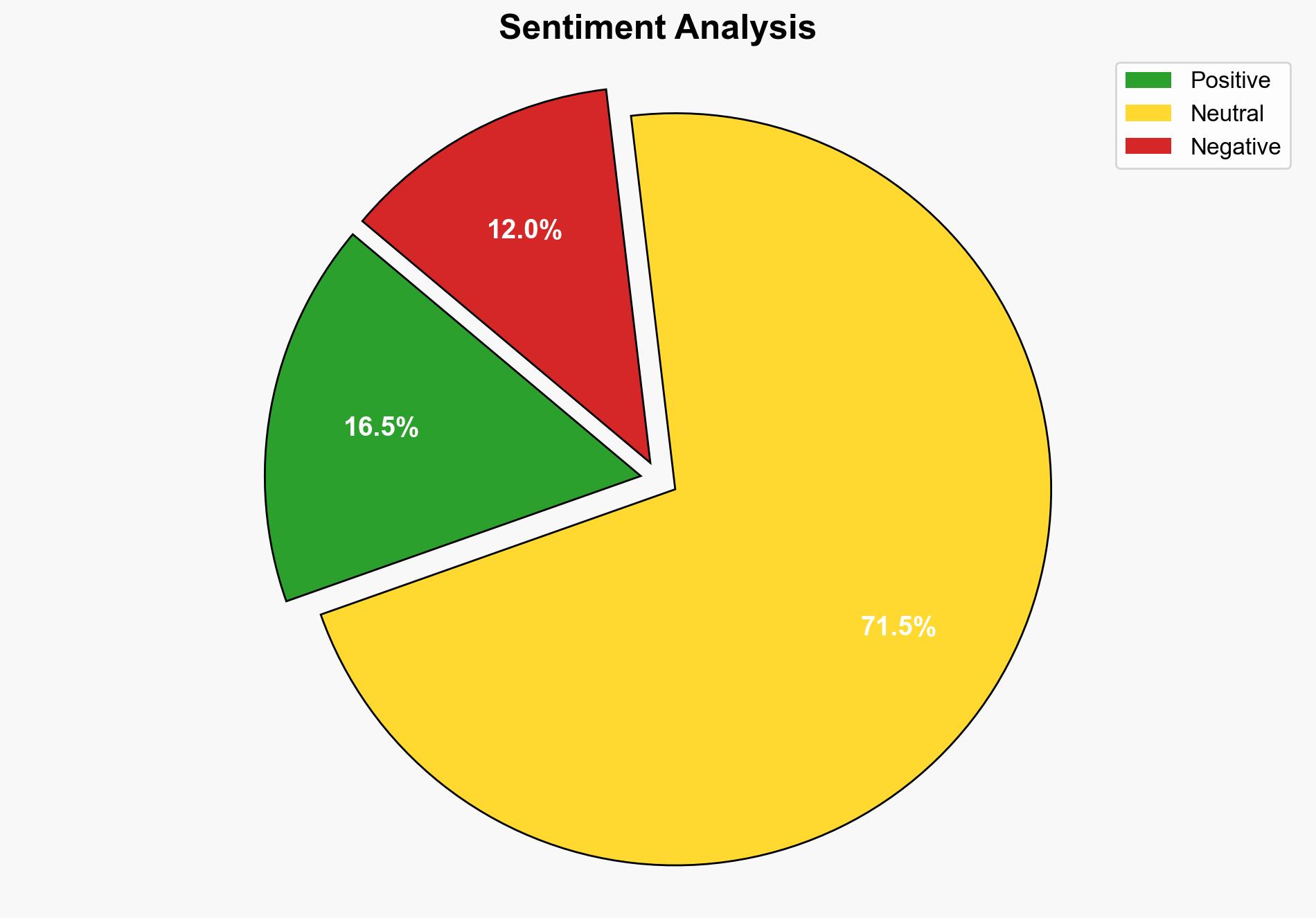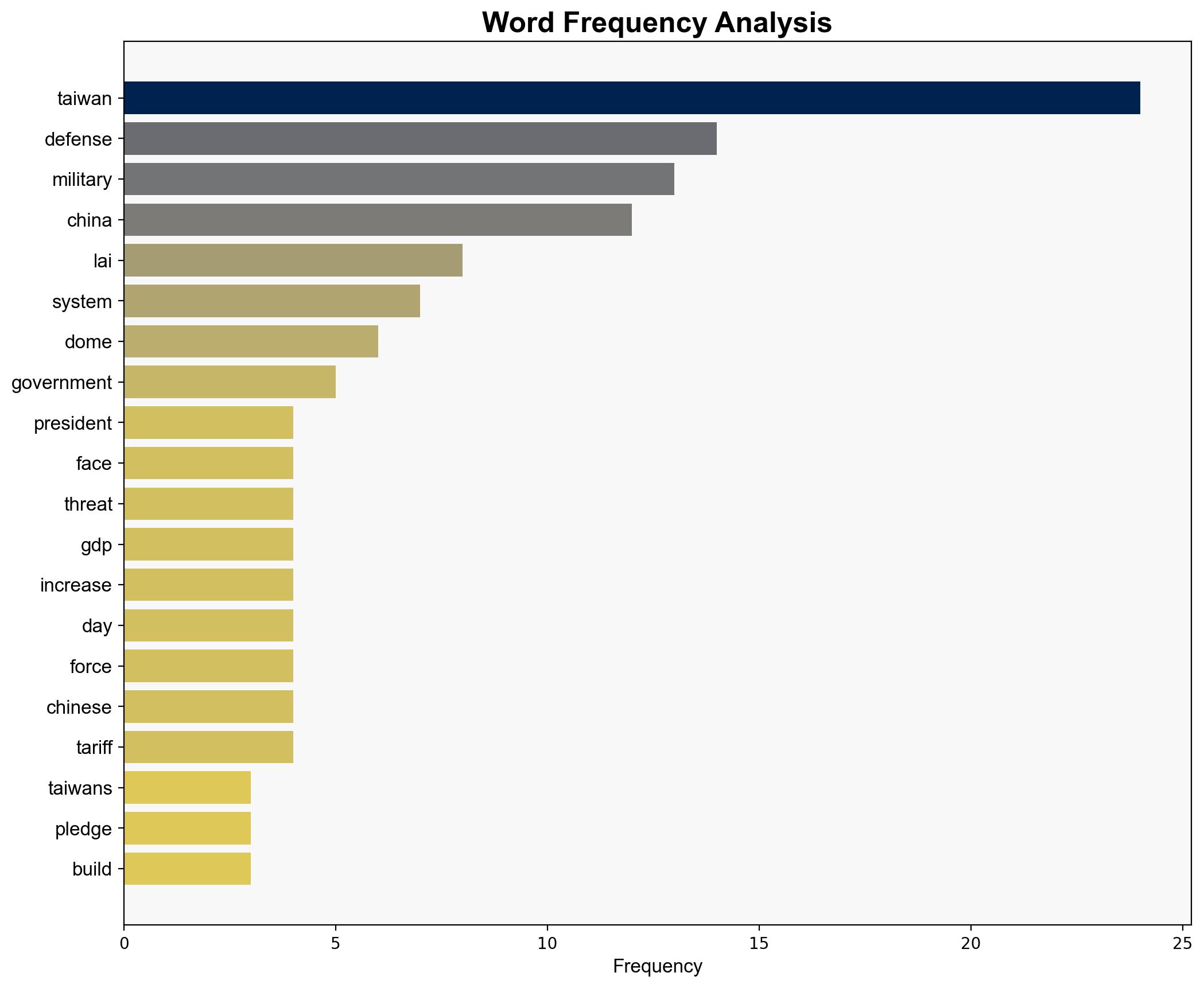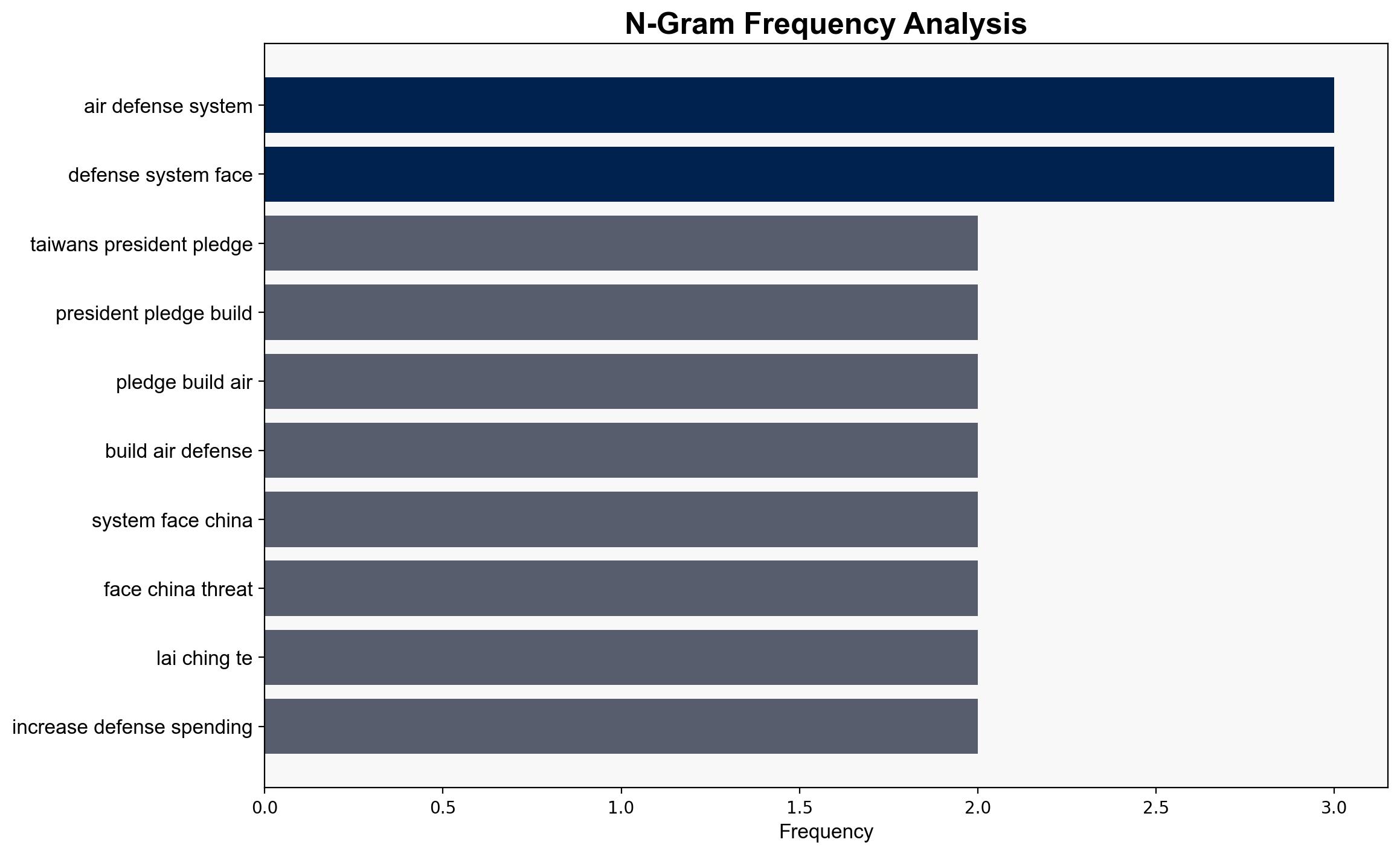Taiwan President Lai pledges to build ‘T-Dome’ air defense system – Associated Press
Published on: 2025-10-10
Intelligence Report: Taiwan President Lai pledges to build ‘T-Dome’ air defense system – Associated Press
1. BLUF (Bottom Line Up Front)
Taiwan’s initiative to develop the ‘T-Dome’ air defense system is a strategic move to counter increasing military threats from China. The most supported hypothesis is that this is a defensive measure aimed at deterrence rather than provocation. Confidence level: Moderate. Recommended action: Enhance diplomatic efforts to de-escalate tensions while supporting Taiwan’s defensive capabilities.
2. Competing Hypotheses
1. **Defensive Deterrence Hypothesis**: Taiwan’s development of the ‘T-Dome’ is primarily a defensive strategy to deter potential Chinese aggression and reassure its population and allies of its commitment to self-defense.
2. **Provocative Escalation Hypothesis**: The announcement of the ‘T-Dome’ system is a provocative move that could escalate tensions with China, potentially leading to increased military confrontations in the Taiwan Strait.
Using ACH 2.0, the Defensive Deterrence Hypothesis is better supported by the evidence, as the initiative aligns with Taiwan’s historical posture of maintaining peace and stability while enhancing its defense capabilities.
3. Key Assumptions and Red Flags
– **Assumptions**:
– Taiwan’s defense spending increase is sustainable and will not provoke a disproportionate response from China.
– The ‘T-Dome’ system will be effective in deterring Chinese military actions.
– **Red Flags**:
– Lack of specific details on the ‘T-Dome’ system’s capabilities and timeline.
– Potential underestimation of China’s response to increased military capabilities in Taiwan.
4. Implications and Strategic Risks
– **Geopolitical**: Increased military capabilities in Taiwan could lead to heightened tensions in the region, affecting U.S.-China relations and regional stability.
– **Economic**: Escalation of military tensions could impact Taiwan’s economy, particularly if it affects trade routes or leads to sanctions.
– **Cyber**: Potential increase in cyber espionage or attacks targeting Taiwan’s defense infrastructure.
– **Psychological**: The announcement may bolster public confidence in Taiwan but could also increase anxiety over potential conflict.
5. Recommendations and Outlook
- Enhance diplomatic channels with China to reduce the risk of miscalculation and conflict escalation.
- Support Taiwan in developing robust cyber defenses to protect its new military infrastructure.
- Scenario-based projections:
- Best Case: Successful deterrence with no escalation, leading to a stable status quo.
- Worst Case: Military confrontation triggered by misinterpretation or provocation.
- Most Likely: Continued tension with periodic diplomatic engagements to manage the situation.
6. Key Individuals and Entities
– Lai Ching-te
– Guo Jiakun
7. Thematic Tags
national security threats, regional focus, defense strategy, geopolitical tensions




